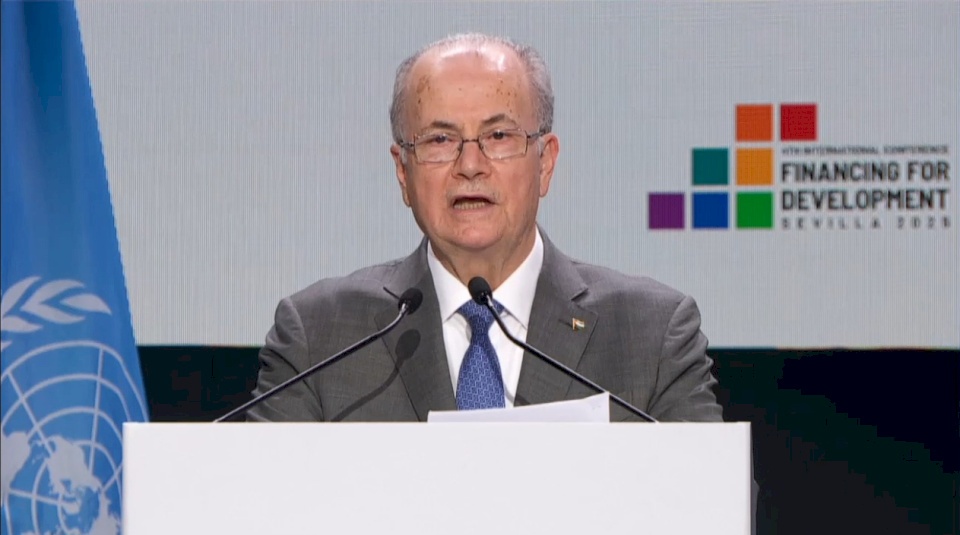
Mustafa: The Local Governance Sector is One of the Most Important Sectors Due to its Direct Connection with Citizens
Sada News - Prime Minister Dr. Mohamed Mustafa affirmed the commitment of the President and the government to elevate the local governance sector, working with all resources to support the efforts of the Ministry of Local Governance in this direction and overcoming all challenges facing this sector.
Mustafa pointed out that the local governance sector is considered one of the most important sectors due to its direct connection with citizens through local authorities, municipalities, and village councils that provide services to them, praising the efforts of the Ministry of Local Governance to elevate this sector in order to provide the best services to citizens.
This came during his meeting with the Minister of Local Governance Dr. Sami Hajawi and the ministry team, where the implementation of the Sustainability Initiative for Local Governance Bodies was discussed as one of several initiatives launched by the government within the national development and enhancement program for the years 2025-2026, today Thursday in his office in Ramallah, in the presence of several ministers and specialized entities.
For his part, the Minister of Local Governance confirmed that the initiative aims to achieve financial sustainability in the local governance sector, improve creditworthiness, reduce operating expenses, increase revenues, and support the ability of local authorities to provide their services to the local community.
Hajawi indicated that the initiative is based on four main axes: financial stability and local economy, improving municipal services and infrastructure, safeguarding land, governance and institutional development, and recovery and response to emergency work.
Regarding the first axis, it is based on two main programs: the first is to implement government policies to settle the net lending by settling the debts of 89 local authorities to date, where their debts have been reduced by approximately 248 million shekels within a year, and raising the percentage of commitment to pay water and electricity bills from 36% to 72% compared to last year, reflecting its impact on enhancing the sustainability of service delivery to citizens. The second program focuses on development and investment, which included executive initiatives represented by the establishment of a revolving fund for renewable energy projects (Shamsi 2), developing investments of local authorities, and signing agreements between local authorities and the private sector: dynamometer centers, internet service providers, and the Al-Finjan landfill, in addition to other initiatives that the ministry is working on.
The second axis included two main programs: the first relates to improving infrastructure, developing municipal services, achieving their sustainability, and enhancing partnership with the private sector, where the ministry executed projects for local authorities worth 155,369 million shekels last year, while the second program focused on the ministry's role in supporting resilience and enhancing Palestinian sovereignty in areas designated as "C".
The third axis included two programs: the first is reforming the local governance system by focusing on activating and establishing local authority courts, and transferring property tax collection to municipalities where the powers of collection were transferred to 51 municipalities. A draft law regarding the election of local councils was also completed, along with updates to several laws and regulations such as the Law of Cities, Villages, and Buildings, the Building and Organization Law No. 6 of 2011, among others. Regarding the second program represented by adopting electronic services and enhancing the digital economy, the ministry worked on developing electronic services for 68 local authorities and establishing 18 public service centers, a government transfer system for local authorities, issuing construction permits electronically, automating the complaints system and linking it electronically with local authorities, and improving the level of information on the "Geomolog" system to serve citizens, ministries, and authorities.
As for the last axis related to local governance efforts and contributions to recovery and response to emergency work due to the aggression of the Israeli occupation, it included a single program aimed at implementing the directives of the Prime Minister and government directives to urgently respond to citizens' needs through the ministerial committee for emergency work and the technical committee emerging from it, which led emergency interventions to restore, rehabilitate, and compensate damages in the northern governorates with allocations exceeding 56 million shekels financed by the government during the years 2024-2025.

Al-Natsheh: The Eighth General Conference of 'Fatah' Must Be a Step Forward Towards Revivi...

Occupation Forces a Jerusalemite to Demolish His Home in Silwan

More than 24,000 travelers passed through the Karama crossing last week

Police in Ramallah Arrest Suspect for Committing 50 Thefts

Weather Conditions: Rise in Temperatures

70,000 Perform Friday Prayer at Al-Aqsa Mosque

Weather Conditions: Dusty and Partly Cloudy with Rising Temperatures

